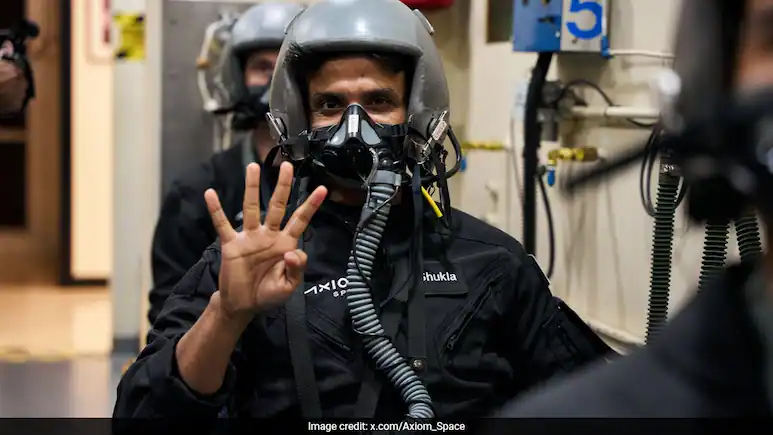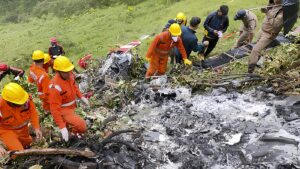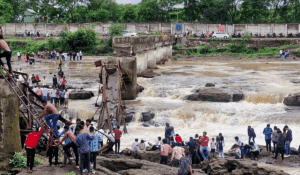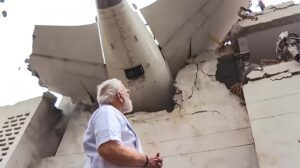Indian astronaut Shubhanshu Shukla began pre-launch quarantine. Three international crewmates joined him. This is for the Axiom Mission-4 to ISS. Launch is June 8 from Kennedy Space Center. A SpaceX Dragon spacecraft will carry them. Shukla will be first Indian at ISS. He will serve as mission pilot. Veteran NASA astronaut Peggy Whitson commands Ax-4.
The crew includes Slawosz Uznanski-Wisniewski from Poland. Tibor Kapu from Hungary also joins, both on first flights. Axiom Space held a send-off ceremony. Shukla stated, “I am sure this mission will succeed.”
Also Read: Haryana Tragedy: Suicide Linked to Property Dispute, Family Strain
Why Astronauts Need To Be In Quarantine after space visit
Pre-launch quarantine ensures astronaut health. It prevents infections jeopardizing the mission. The ISS’s confined space means illness is a serious risk. It affects all crew members. In microgravity, immune systems weaken. This makes astronauts more susceptible to infections.
How astronauts live in quarantine
Quarantine usually lasts about 14 days pre-launch. Astronauts and a small team are isolated then. This happens near the launch site. Protocols include strict public isolation. Enhanced hygiene and daily monitoring are key. Physical contact is severely limited. Final briefings and training occur in isolation. This minimizes pathogen exposure. If symptoms arise, further isolation occurs. This prevents mission risk.
Also Read: Jyoti Malhotra Sent to 14-Day Custody in Espionage Case
Schedule Aboard ISS
On ISS, Ax-4 crew will spend 14 days. They’ll do experiments and tech demos. Public outreach is also planned. Ax-4 prep involved rigorous astronaut training. Facilities included NASA Johnson Space Center. ESA’s center in Germany was also used. Various SpaceX locations were part of it. Training covered systems and simulations. Emergency procedures were also taught. This mission is key for India. Also, it’s vital for Poland and Hungary. For India, it’s first human space presence since 1984. That mission was Rakesh Sharma’s Soyuz flight.











More Stories
Kedarnath Helicopter Crash: ‘हेलिकॉप्टर थोड़ा मुड़ा, पीछे की तरफ गया और फिर…’, सामने आया हादसे का असल कारण
Pune bridge collapse: Congress demands accountability, calls for questions to be asked of those in power
Kareena Kapoor, Saif Ali Khan rushed to be by Karisma Kapoor and her kids’ side at 2am after Sunjay Kapur’s death news